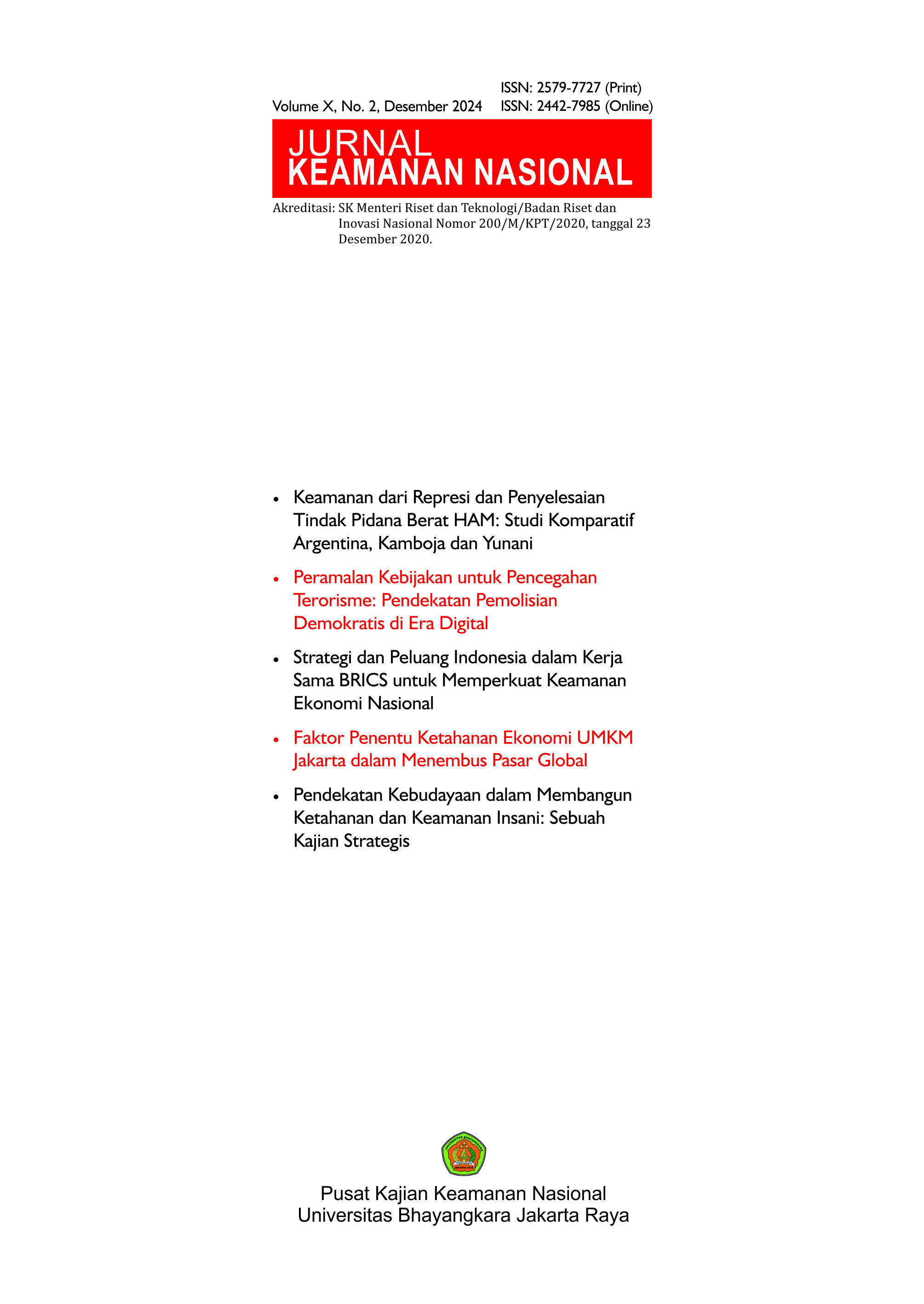Strategi dan Peluang Indonesia dalam Kerja Sama BRICS untuk Memperkuat Keamanan Ekonomi Nasional
DOI:
https://doi.org/10.31599/s7aaj612Keywords:
BRICS, Economic Policy, Economic Security, Indonesia, New Development BankAbstract
This study aims to explore the impact of BRICS dynamics on Indonesia's economic security, focusing on economic policies, financial initiatives, and geopolitical shifts involving BRICS countries. This research evaluates the effects of economic cooperation within BRICS, the launch of a new BRICS currency, and infrastructure investments funded by the New Development Bank (NDB) on Indonesia's financial stability, trade opportunities, and domestic economic policies. The findings indicate that while there are opportunities for Indonesia to expand trade and secure financing for infrastructure projects, challenges related to the volatility of the rupiah exchange rate and the potential dependence on foreign investments remain significant concerns. On the other hand, the potential for strategic cooperation in sectors such as energy, technology, and other industries could provide positive contributions to Indonesia's economy by enhancing global competitiveness and strengthening domestic economic resilience. This study is expected to provide valuable insights for Indonesian policymakers in formulating strategies to leverage the opportunities presented by BRICS dynamics while managing the risks of an increasingly complex global economy.
Downloads

Downloads
Published
Issue
Section
License
Copyright (c) 2024 Muslim, Dr. Diah Ayu Permatasari, S.T., S.I.P., M.I.R (Author)

This work is licensed under a Creative Commons Attribution 4.0 International License.
Please read and understand the copyright terms for submissions to this journal.
Copyright Notice
The Jurnal Keamanan Nasional is under the Creative Commons Attribution 4.0 International (CC-BY 4.0) License, according to which:
1) Authors retain copyright and grant the journal the right to first publication, with the work simultaneously licensed under the Creative Commons Attribution (CC-BY 4.0) that allows the sharing of articles published with the acknowledgement of authorship and the initial publication in this journal.
2) The authors are authorized to make additional contracts separately for distribution of the version of the work published in this journal (for example, publication in an institutional repository or as a chapter of the book), as long as there is recognition of authorship and initial publication in this journal.
3) Authors are authorized and encouraged to publish and distribute their work online (for example, in institutional repositories or on their personal pages) at any time before or during the editorial process, as it increases the impact and reference of the published work.












